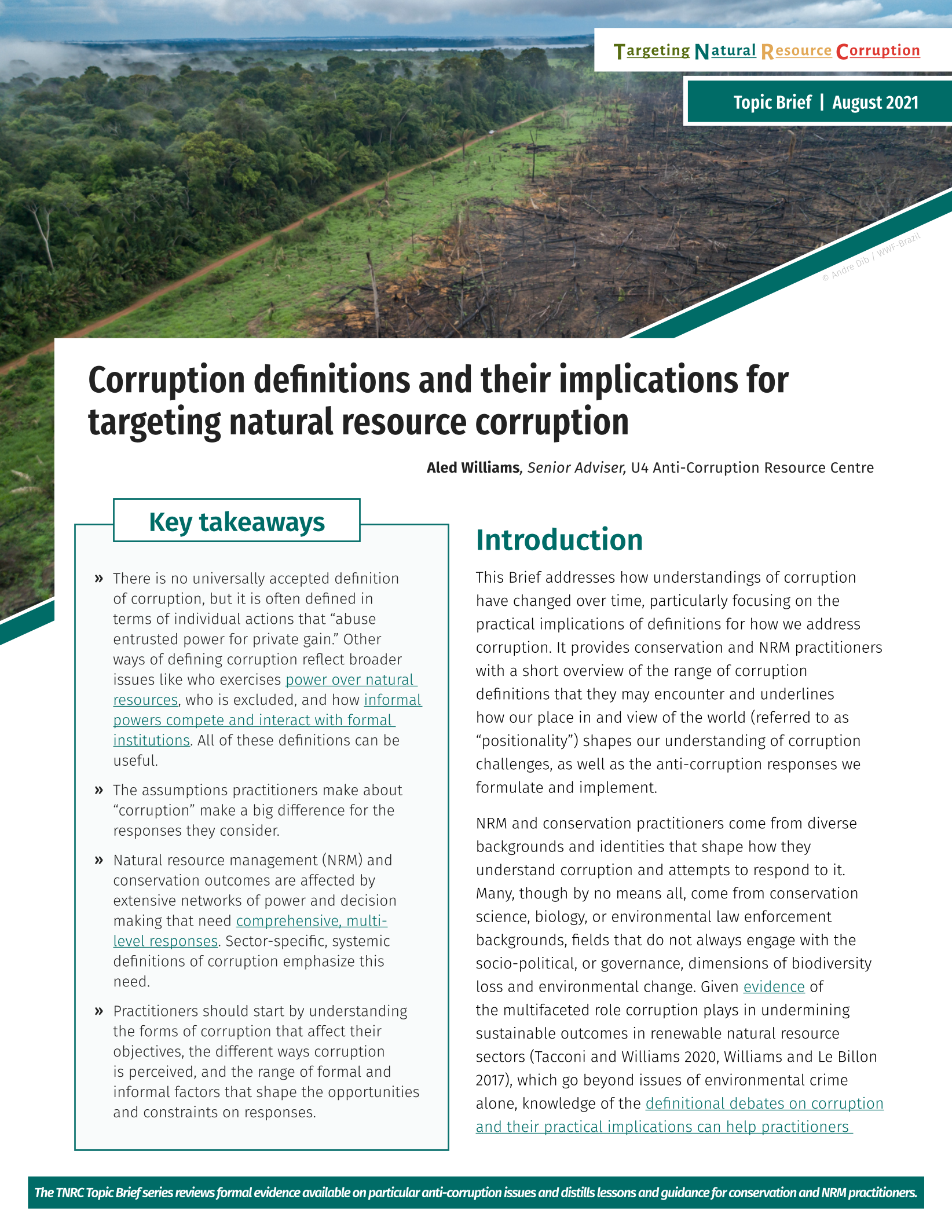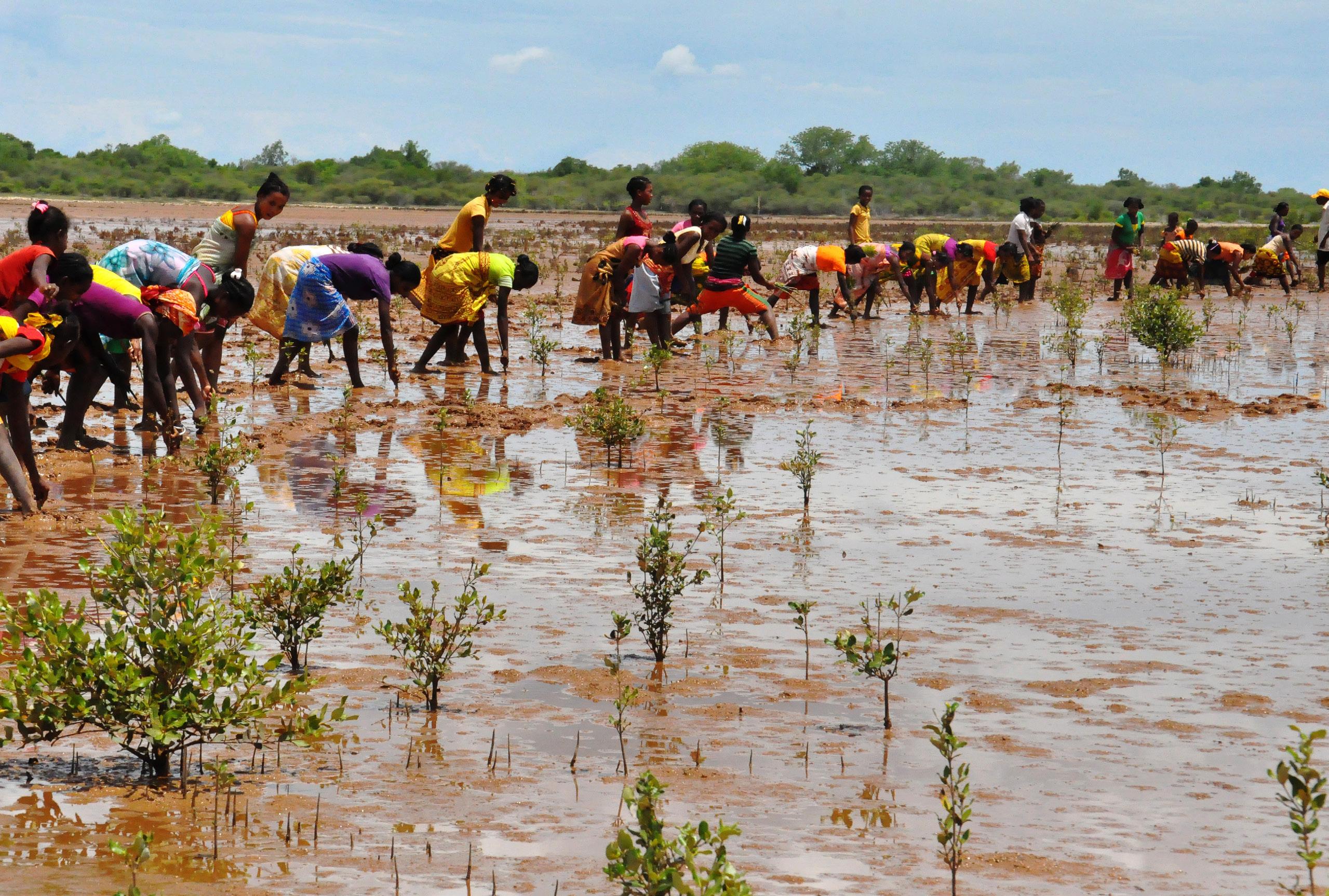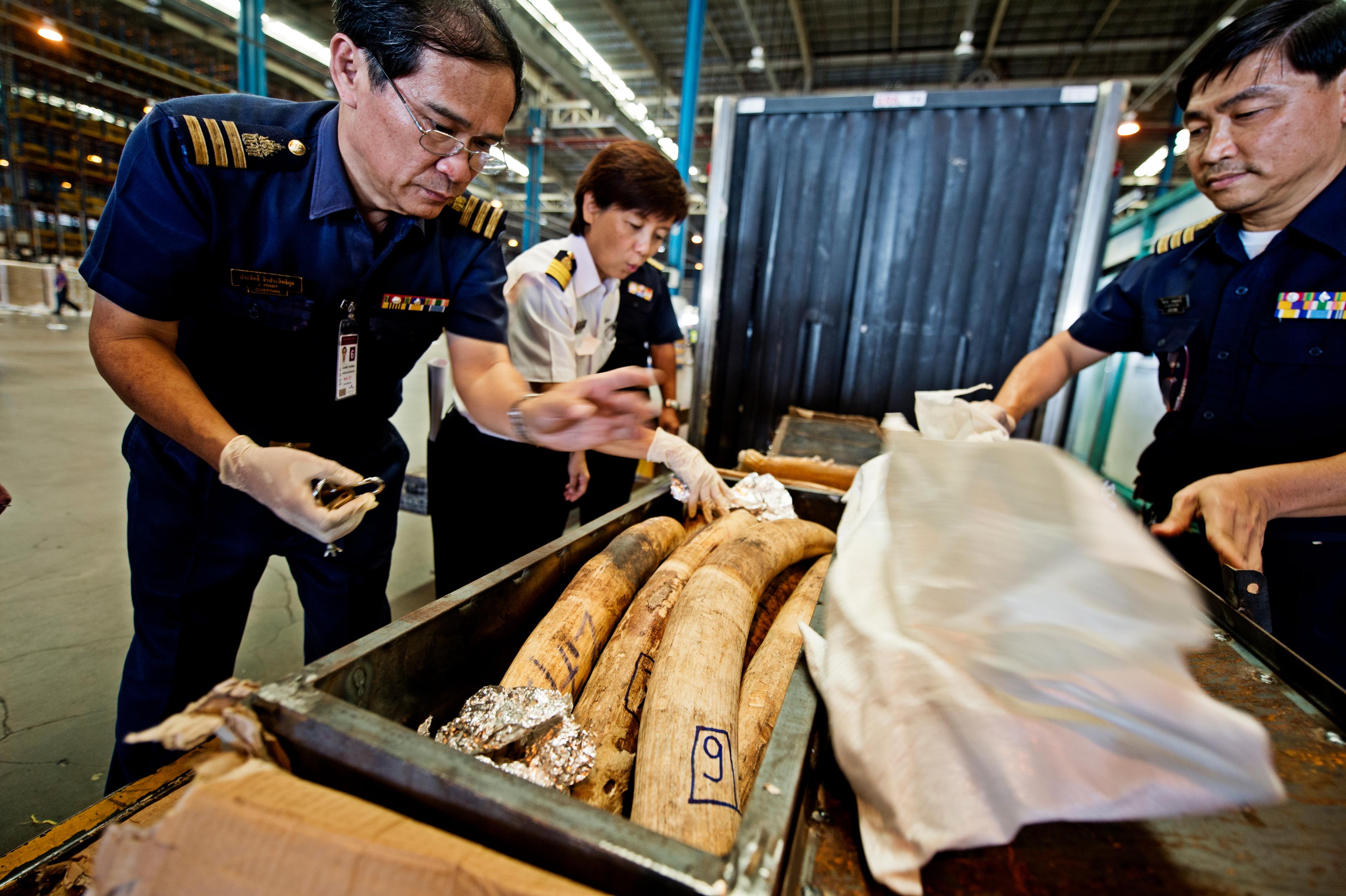Main points
- There is no universally accepted definition of corruption, but it is often defined in terms of individual actions that “abuse entrusted power for private gain.” Other ways of defining corruption reflect broader issues like who exercises power over natural resources, who is excluded, and how informal powers compete and interact with formal institutions. All of these definitions can be useful.
- The assumptions practitioners make about “corruption” make a big difference for the responses they consider.
- Natural resource management (NRM) and conservation outcomes are affected by extensive networks of power and decision making that need comprehensive, multi- level responses. Sector-specific, systemic definitions of corruption emphasize this need.
- Practitioners should start by understanding the forms of corruption that affect their objectives, the different ways corruption is perceived, and the range of formal and informal factors that shape the opportunities and constraints on responses.




